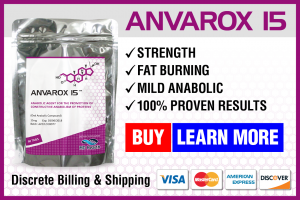Being that T3 is a fat burning agent, Cytomel cycles are very straightforward and relatively simple. As previously mentioned, the practice of slowly titrating T3 doses upwards (ramping up the dose) is really only necessary when attempting to utilize T3 for the very first time so as to assess tolerance to the compound, side effects, possible muscle loss, and body heat output increases as a result of the increased metabolic rate. By the same admission, it is unnecessary at any point to slowly titrate T3 doses downwards (ramping down the dose) after a T3 cycle. Following the conclusion of a Cytomel cycle, it is best to immediately halt all administration of the drug. This is because the thyroid gland is a component of the endocrine system, it is a proper endocrine gland, and should be treated as such. If doses of thyroid hormone are still being administered even though they are being slowly titrated downwards, the thyroid gland will have no reason to resume healthy operation so long as it detects exogenous thyroid hormone being administered. It is therefore best to completely eliminate administration all at once at the conclusion of a Cytomel cycle, and this way the drug will clear quickly from the body, which will result in a faster restoration of thyroid gland function.
Other fat burning agents are included into Cytomel cycles, such as beta-agonsists (such as Clenbuterol and Albuterol), Ephedrine, Human Growth Hormone (HGH), as well as even other thyroid hormones (such as T4). The use of anabolic steroids as an addition to a Cytomel cycle is very common among the athletic and bodybuilding world, as T3 can and does cause the loss of muscle through its immense metabolic boosting effects as previously described in this profile. T3 cycles often include anabolic steroids only when T3 doses rise above a certain range (typically above 50mcg for most individuals). After this point, muscle loss and catabolism can become an issue for the athlete or bodybuilder, at which point the inclusion of anabolic steroids might be necessary to prevent the loss of muscle, which can be very detrimental for an athlete or bodybuilder.
There are also certain other compounds that should not be included within a T3 cycle, for they will reduce the effectiveness of T3. One such compound is L-Carnitine, a common amino acid supplement found in many supplement stores throughout the world. The use of L-Carnitine assists in the transport of free fatty acids into the mitochondria of cells, and increases fat loss through this pathway. An unknown effect of its use is the fact that it disables a vital function of T3 at the cellular level. L-Carnitine has been found to be a peripheral antagonist on the action of thyroid hormone. L-Carnitine inhibits the entry of T3 (as well as Thyroxine, T4) into the cell nucleus. One particular clinical study demonstrated that an L-Carnitine dose of 2 – 4g administered orally ended up reversing hyperthyroid symptoms even in the most serious cases of hyperthyroidism: thyroid storm[1]. The study suggests that since hyperthyroidism impoverishes the tissue deposits of carnitine, this provides a rationale for the use of L-Carnitine in the treatment of hyperthyroidism (or in the event that an individual ingests too much T3). It is therefore advised that any individual who wishes to engage in Cytomel cycles completely avoids the use of L-Carnitine.
Additionally, T3 requires proper levels of the hormone Cortisol in the body in order to effectively perform its job. Many individuals have been known to engage in a Cytomel cycle, only to discover that it is not providing any significant fat loss effects, nor any increase in body heat. It is very important to understand that Cortisol works alongside T3 in order to initiate lipolysis (fat breakdown) in the body. Cortisol is what drives T3 into the cells so that T3 can initiate an increase in energy production and consumption. Often times, the reduced effectiveness of T3 can be attributed to the use of a Cortisol blocker or Cortisol blocking supplement and/or the use of other drugs or hormones that suppress the production of Cortisol in the body. Some users who have been met with disappointment in regards to their T3 cycles have attempted the use of Hydrocortisone cream, or supplements that might increase Cortisol levels in the body (such as 5-HTP[2]), and have in turn experienced a drastic boost in metabolism, body heat production, and overall effectiveness of T3. One particularly important and prominent symptom of low or inadequate Cortisol levels during the use of T3 is extreme lethargy. Once again, the use of Hydrocortisone cream at 5 – 10g per day might possibly alleviate the problem.
Sample Cytomel cycle #1 (12 weeks total cycle time)
Weeks 1-12:
– Testosterone Enanthate at 300mg/week
– Trenbolone Enanthate at 400mg/week
Weeks 1-8:
– Cytomel (T3) at 75 – 100mcg/day
Sample T3 cycle #2 (8 weeks total cycle time)
Weeks 1-8:
– Testosterone Propionate at 100mg/week (25mg every other day)
– Trenbolone Acetate at 200mg/week (50mg every other day)
– Clenbuterol at 120mcg/day
– Ketotifen every second week of Clenbuterol use at 2mg/day
– Cytomel (T3) at 100mcg/day
Sample Cytomel cycle #3 (8 weeks total cycle time)
Weeks 1-8:
– Testosterone Propionate at 100mg/week (25mg every other day)
– Trenbolone Acetate at 200mg/week (50mg every other day)
– Drostanolone Propionate (Masteron) at 400mg/week (100mg every other day)
– Cytomel (T3) at 100mcg/day
Weeks: 1-2, 5-6, 8+:
– Clenbuterol at 120mcg/day
Cytomel (T3) References:
[1] Effects of Carnitine on Thyroid Hormone Action. Benvenga, Salvatore; et al (2004). Ann. N.Y. Acad. Sci. 1033 (1033): 158–167. doi:10.1196/annals.1320.015. PMID 15591013.
[2] The cortisol responses to 5-hydroxytryptophan, orally, in depressive inpatients. Maes M, De Ruyter M, Claes R, Bosma G, Suy E. J Affect Disord. 1987 Jul-Aug;13(1):23-30.





